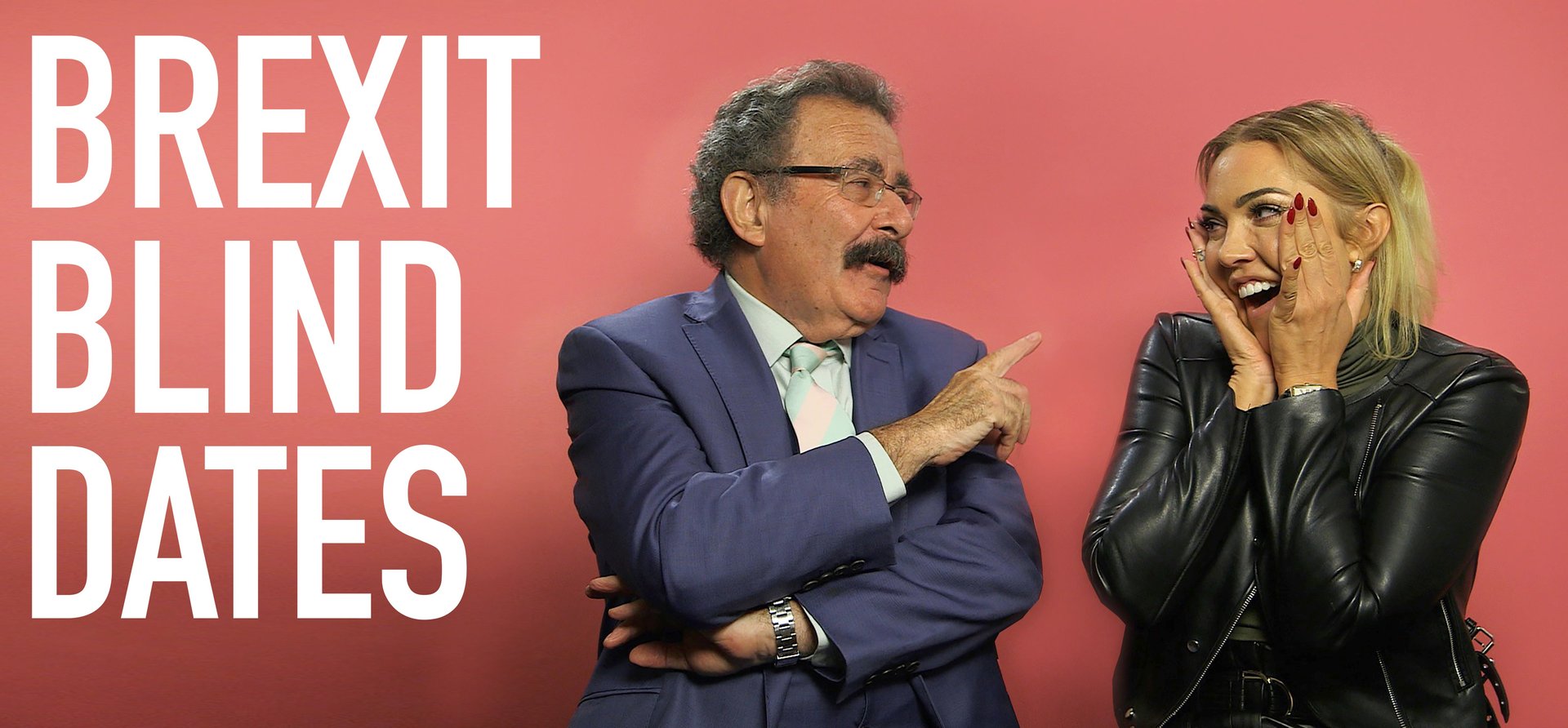This Brexit dating show is everything America needs right now
Blind dates are one of the most awkward, potentially uncomfortable situations to put people in. Brexit is one of the most divisive, potentially catastrophic situations the UK has ever been in. What happens when you combine the two? Reality TV gold.


Blind dates are one of the most awkward, potentially uncomfortable situations to put people in. Brexit is one of the most divisive, potentially catastrophic situations the UK has ever been in. What happens when you combine the two? Reality TV gold.
OK, so there’s no actual romance involved, but the BBC’s Brexit Blind Dates uses the premise of connecting two strangers over a meal in order to spark a conversation about the UK’s impending withdrawal from the EU. The show forces participants from opposite sides of the political spectrum to practice a skill we’ve increasingly forgotten in the age of social media: having a civilized debate, face-to-face, in public.
“I don’t think there was anyone who wasn’t nervous about the experience,” says producer Emma Ailes.
The five-episode show, released last week, is based on the UK’s popular Channel 4 show First Dates, which films singletons during their (often painfully awkward) initial encounters. The producers first used the format last year, with a series of episodes focused on the snap election. Brexit was an easy choice for the follow-up. “I think a lot of audiences probably feel quite bored or frustrated or confused by a lot of Brexit coverage,” Ailes says. “We wanted to do something that was accessible and that was going to be entertaining as well as informative.”
Political conversations aren’t easy in our divided age. The show puts “political discussion into a different context, a different format that brought some light-hearted moments, that brought some humanity to it,” Ailes says.
In one episode, civil servant and Love Island contestant Zara McDermott, who voted to leave the EU, sits down with Green Party member and “Lord Mayor” of Sheffield, Magid Magid, who wants the Brexit vote revisited in another referendum. Magid brought an EU-inspired bunch of flowers to the date. McDermott and Magid parried over immigration, the government’s budget, welfare, and more, at times talking over each other. They disagreed on most points, except perhaps when Magid sighed dramatically that “government is just crap.”
Ailes says she was surprised that talking about Brexit, an intensely touchy topic in the UK, didn’t result in turned-over tables or dramatic exits during the show. “Almost without fail, people have got on, and by the end of it have managed to find things they agree on. They’ve interacted as people and found common ground as people even if they haven’t found anywhere they align politically,” she says.
Ailes also believes a show like this could work well in other divided political contexts, like the US (perhaps with more overturned tables and dramatic production music), saying, “increasingly, in many places, political debate is polarized and on social media often it is hard to see common ground.” Indeed, the intense divide in opinions about president Donald Trump is the culmination of years of growing partisan polarization in the US, according to the Pew Research Center.
A show like Brexit Blind Dates serves to demonstrate that “everyone has an equal vote, everyone has an equal say,” says Ailes. “The way to do politics is to sit down and talk about things, try and find common ground and listen rather than… shouting across the divide.”